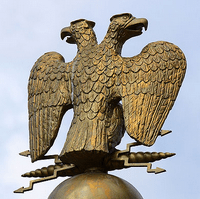Have we really reached the end of American hegemony? For those who think so, the signs of America's decline and the rise of emerging powers are everywhere. According to this line of argument, the world's sole superpower succumbed to overstretch. U.S. failures in the "war on terror" revealed the limitations of American military power, while its role in provoking the global economic crisis revealed the shortcomings of American economic leadership. As a result, rising powers around the world feel suddenly emboldened by America's visible weakness. Brazil's president blames the worldwide recession on "white-skinned people with blue eyes," and Russia and China call for the creation of a new international currency reserve to replace the dollar. Even President Barack Obama concedes that "if there's going to be renewed growth, it cannot just be the United States as the engine." America's obituary, it seems, has already been written, and the next great powers have already been crowned. Not so fast. America's decline is overstated, and the questions and assumptions about its imminent fall need to be revisited.
Does the financial crisis reveal America's relative weakness?
Not So Fast: Rethinking America’s Decline

